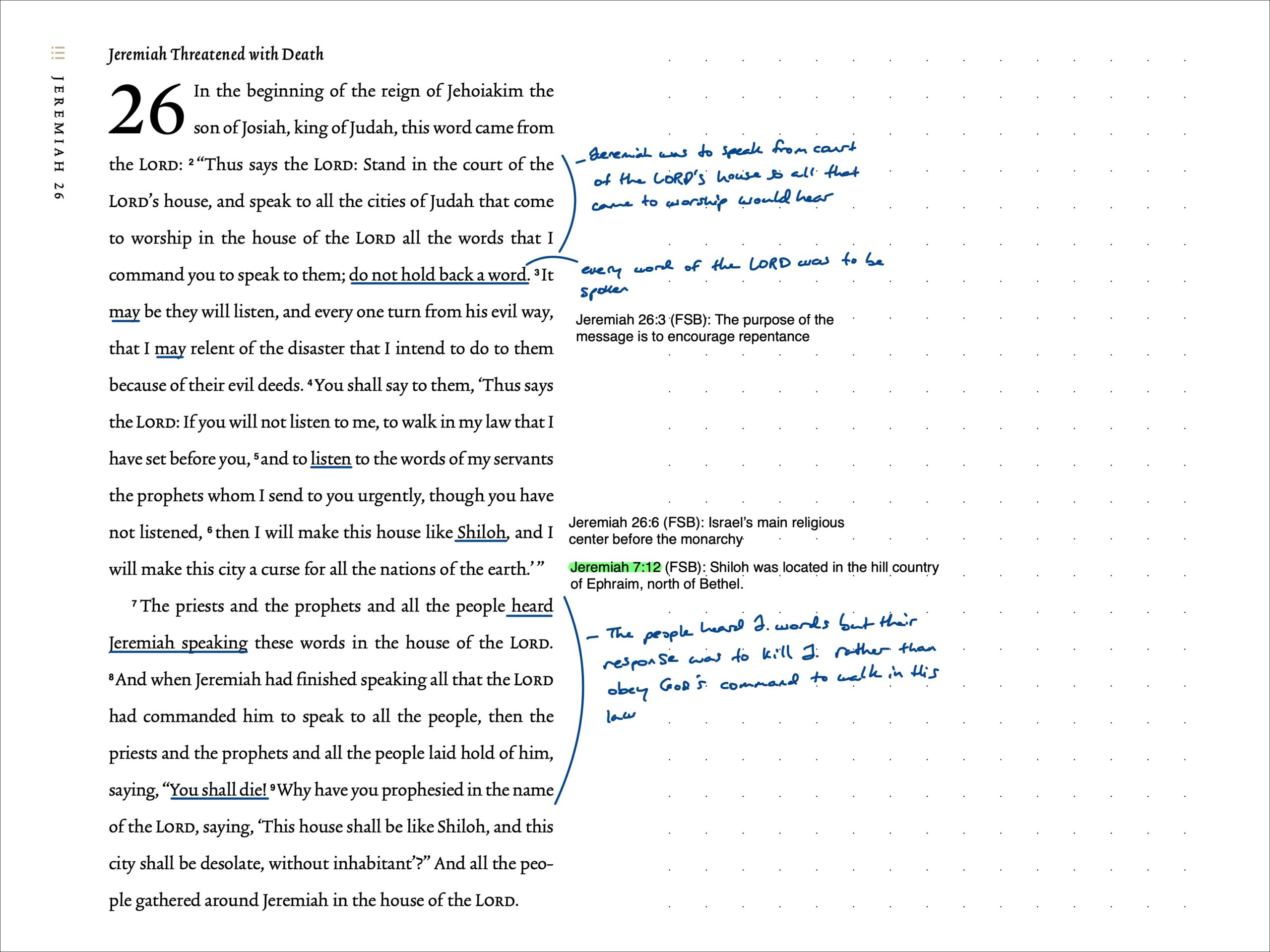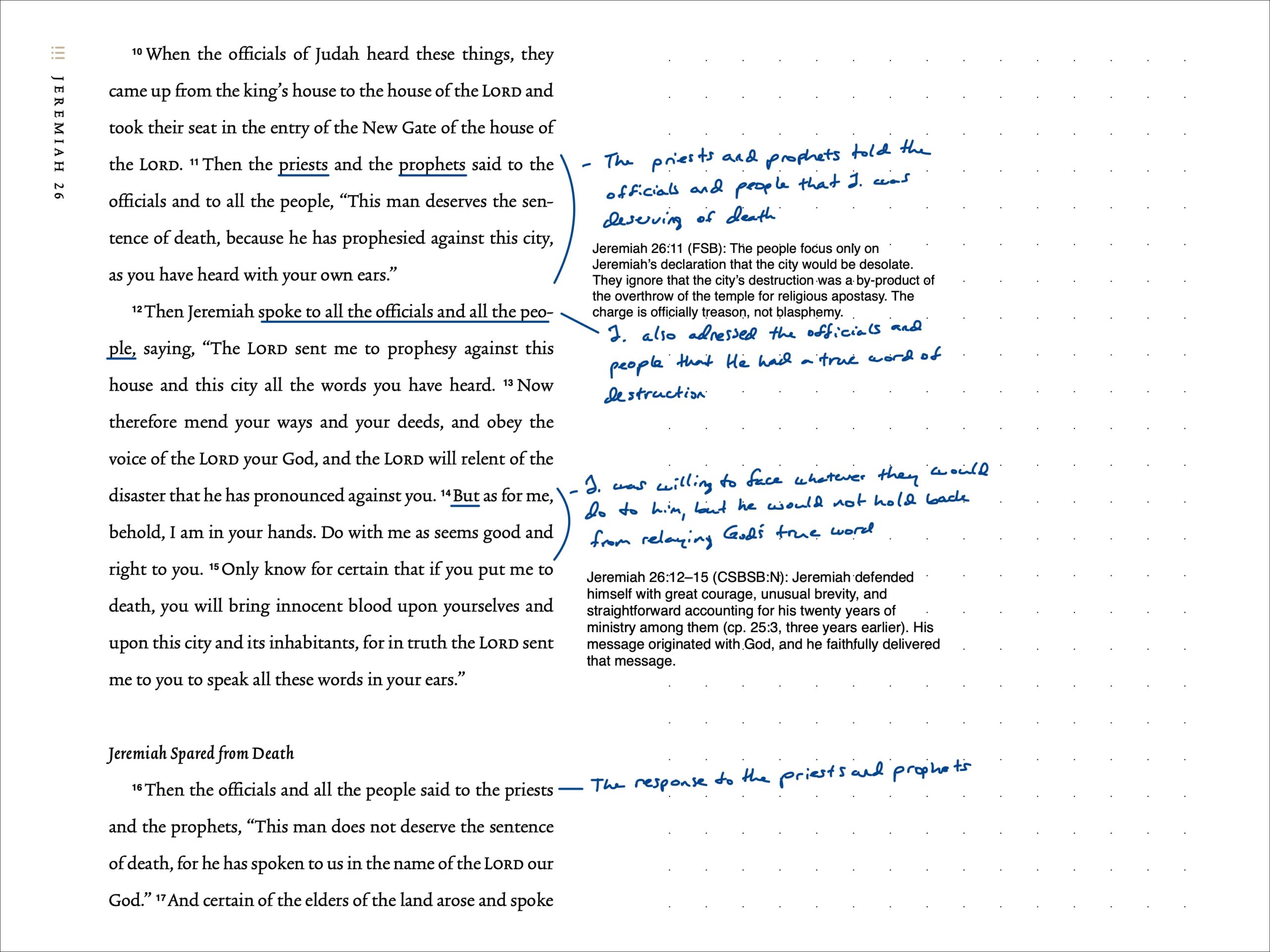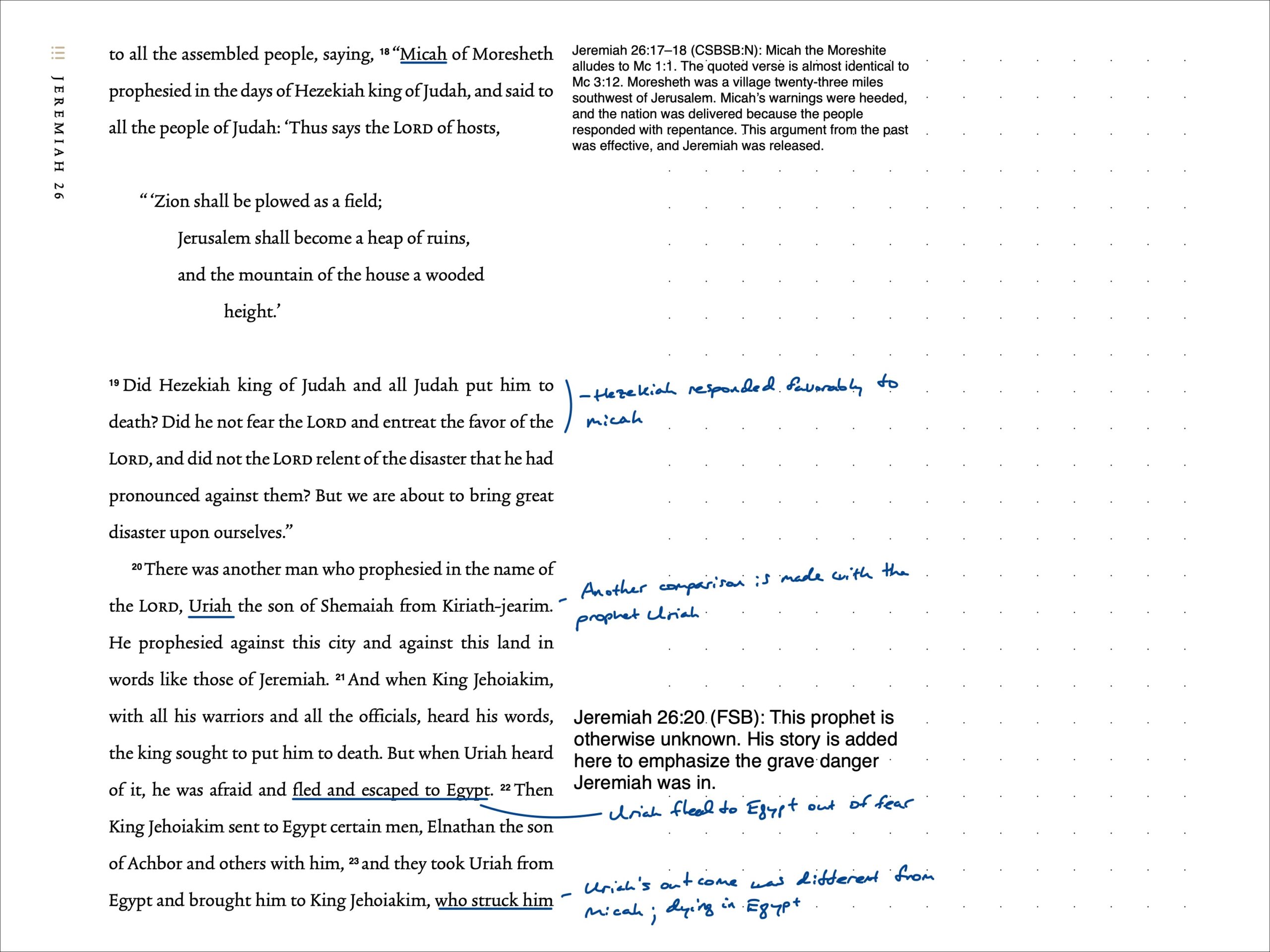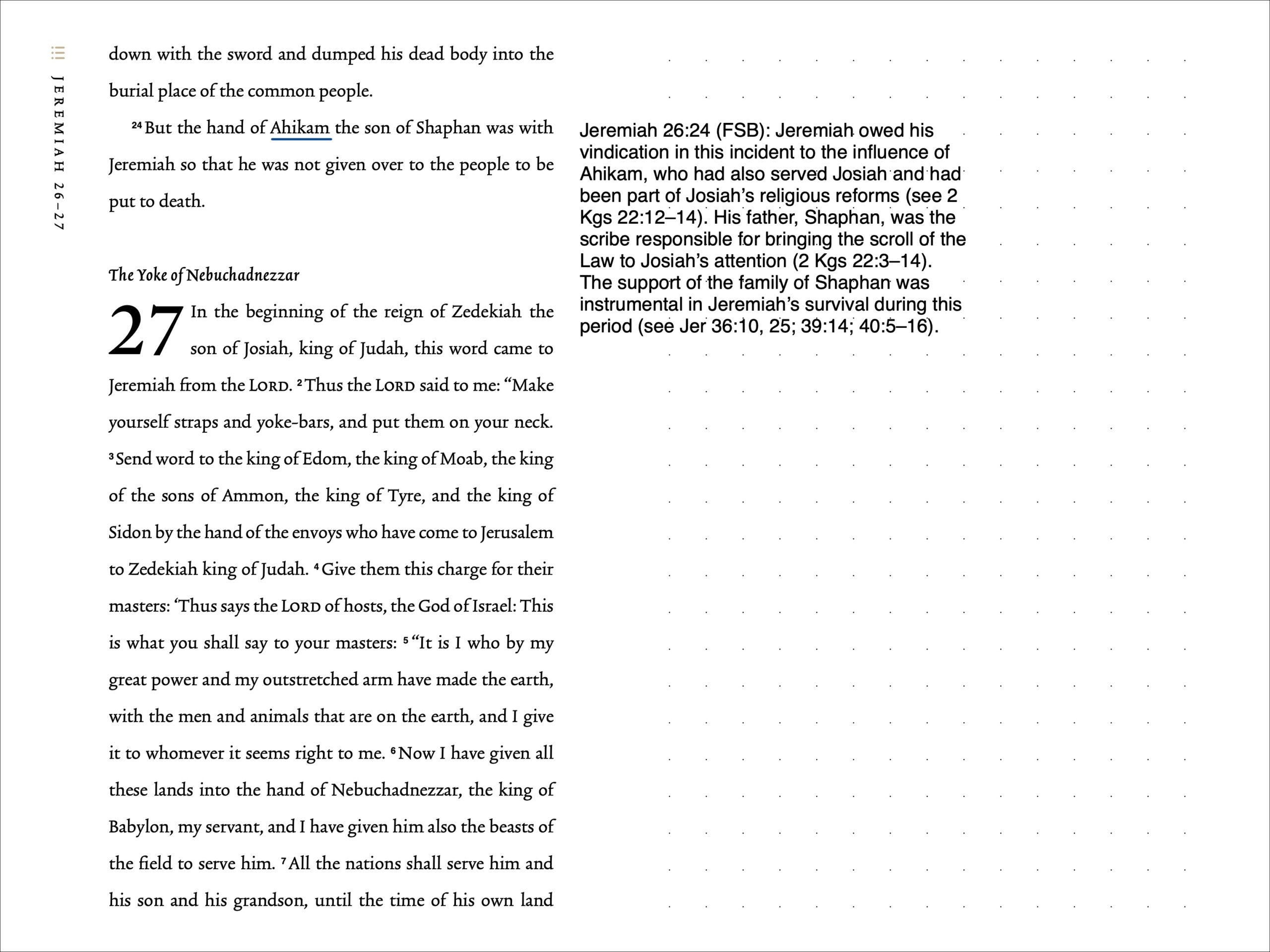| Date | Version | Reading Plan |
|---|---|---|
| @July 19, 2023 | ESV (2016) | ESV Prophets Plan 2023 |
Pericopes
- Jeremiah Threatened with Death
- Jeremiah Spared from Death
Notes
The chapter opens with a word of the Lord given to Jeremiah in the beginning of the reign of Jehoiakim. He was to speak in “the court of the LORD’s house” so that all who came to worship would hear. Every word of God was to be spoken (Jer. 26:3) and the message was to encourage the people to repent.
Jer. 26:7-11 is the hearing and response of the people to Jeremiah’s words. Everyone heard the proclamation, but the priests and prophets responded by telling the officials and people that Jeremiah shall die (Jer. 26:8). So far gone were the priests and prophets that they not only disobeyed the command to walk in God’s law but campaigned for Jeremiah’s death.
In Jer. 12-15, Jeremiah also speaks to the officials and people that “The LORD sent me to prophesy against this house and this city” (Jer. 26:12). Jeremiah defended himself and his representation of God with great courage, willing to face whatever actions they would bring against him (Jer. 26:14). In Jer. 26:16, we get the response from the officials and people, that Jeremiah had spoken to them “in the name of the LORD our God” and was undeserving of death.
The remainder of the chapter (Jer. 26:17-24) contains discourse of two other prophets who also prophesied truth in the name of the LORD against the land: Micah (the biblical prophet) and Uriah. King Hezekiah responded favorably to Micah and entreated the favor of the LORD, leading to the relenting of disaster (Jer. 26:19).
However, the outcome for Uriah, was very different. Uriah “prophesied against this city and against this land in words like those of Jeremiah” (Jer. 26:20), but fled to Egypt when he heard that King Jehoiakim was seeking to kill him. Uriah was gathered from Egypt and brought to Jehoiakim who “had him struck down with the sword and dumped his body into the burial place of the common people.” (Jer. 26:23). Uriah is an otherwise unknown prophet, but his story serves to emphasize the grave danger of Jeremiah’s position.
In the final verse (Jer. 26:17), we see that Jeremiah is spared by the successful influence of Ahikam, the son of Shaphan. Ahikam served King Josiah and had been part of his religious reforms (2 Kings 22:12-14). Ahikam’s father, Shaphan, was the scribe responsible for bringing the scroll of the Law to Josiah’s attention (2 Kings 22:3-4).
Application
That the priests and prophets responded with such vehemence against Jeremiah’s faithful prophetic message is alarming. Claiming to be servants of God, they were as far from Him as anyone could be. It points to a major theme of false prophets that we see throughout the Bible.
We should be properly awakened to the fact that there are those who speak with fervor and finality but in falsity. This heightened awareness is not to lead us to paranoia or flippantly projecting heresy on servants of God, but an admonition to be so deeply saturated in Scripture that we can discern false teaching when encountered. Our ability to combat deceit is directly proportional to our knowing the truth of God through His Word.
Scripture Journal Notes
Commentaries & Resources Used
- ESV Study Bible. (Wheaton, IL: Crossway, 2008)
- Faithlife Study Bible (Lexham Press, 2016)
- Believer’s Bible Commentary (Thomas Nelson, 2016)
- CSB Study Bible Notes (Holman Bible Publishers, 2017)
- Matthew Henry’s Commentary on the Whole Bible (Guardian Press, 1976)
- The Bible: A Reader’s Guide (Sterling Publishing, 2011)
- The Infographic Bible (Zondervan, 2018)
- ESV Digital Scripture Journal (Crossway, 2019)



